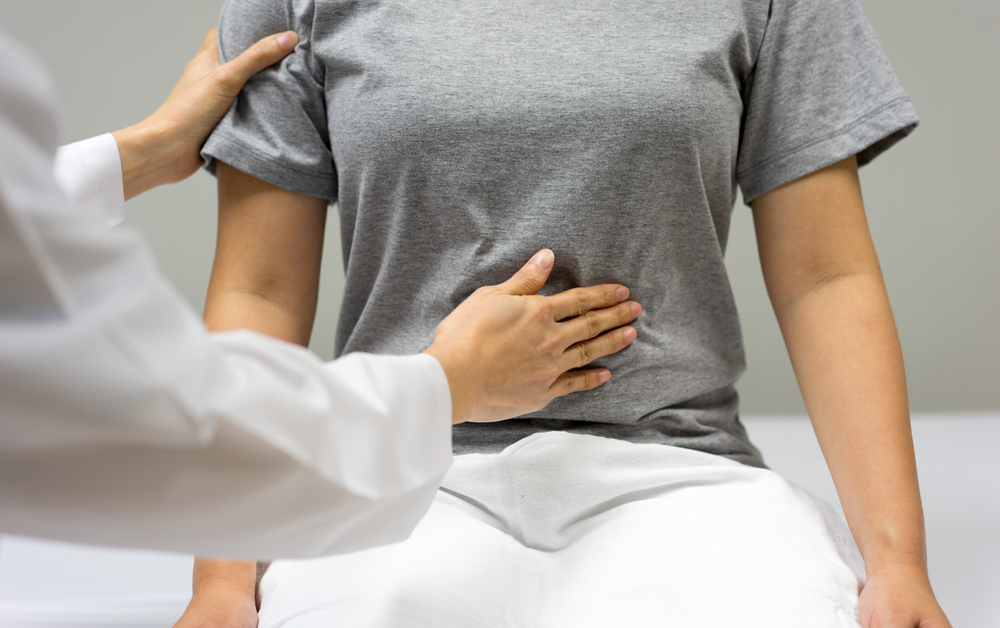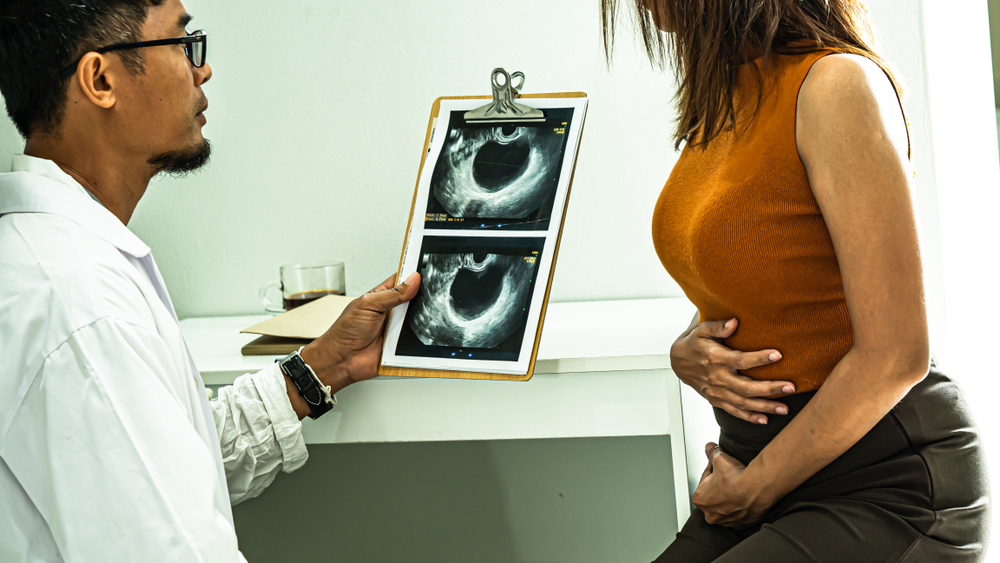
How MMJ Health can help Patients with Endometriosis
Endometriosis is a chronic condition that affects millions of women worldwide. Endometriosis, also known as “endo”, gets its name from the word endometrium or the tissue that normally lines the uterus or womb. Endometriosis is what happens when tissue similar to the lining of the uterus (womb) grows outside of the uterus and other areas of the body where it does not belong. These growths are called endometrial implants.
It is mostly found on the ovaries, fallopian tubes, tissues that hold the uterus in place and the outer surface of the uterus. Other sites may include the vagina, cervix, vulva, bowel, bladder or rectum. Rarely endometriosis may appear in other soft tissue areas of the body, like the lungs, brain and skin.
It is a common health problem for women, affecting more than 11% of American women between ages 15 – 44. However it is most common in women in their 30s and 40s and can affect the chances of becoming pregnant.

This misplaced tissue can cause pain, inflammation, and the formation of adhesions, leading to a range of symptoms. Endometriosis can be a debilitating condition, impacting a woman’s quality of life and fertility. While there is no cure for endometriosis, medical marijuana has shown promise in providing relief for some of its symptoms. The cannabinoids found in medical marijuana, such as THC and CBD, have demonstrated anti-inflammatory and pain-relieving properties. These compounds can help alleviate the chronic pelvic pain, cramps, and discomfort associated with endometriosis. Additionally, medical marijuana may help reduce muscle spasms, improve mood, and support overall well-being, allowing women with endometriosis to better manage their symptoms and enhance their quality of life.
Please note that it’s essential for individuals with endometriosis to consult with their healthcare providers, preferably those experienced in medical marijuana, to discuss the potential benefits and risks of using medical marijuana as part of their treatment plan.

There is no exact cause for endometriosis. Doctors do not know what causes the disease yet. However, researchers are studying the disease and looking for answers.
Understanding the causes of Endometriosis is an ongoing area of research, and while the exact cause remains unknown, several theories have been proposed. Endometriosis is a complex condition that occurs when endometrial-like tissue grows outside the uterus. Although the precise mechanism is not fully understood, various factors are believed to contribute to the development of Endometriosis. Let’s explore some of the potential causes:
It’s important to note that while these factors are believed to be associated with the development of Endometriosis, the condition can still occur without any known cause. Further research is necessary to gain a deeper understanding of the complex factors involved in the development of Endometriosis.
Experts group endometriosis by stage and type. This is based on location, depth, size and amount of the tissue. To determine a stage, doctors assign points according to the spread of the endometrial tissue, it’s depth and areas of the body that are affected. They typically use the most popular scale from the American Society of Reproductive Medicine.
Endometriosis can manifest in various forms, and understanding the different types is essential for accurate diagnosis and treatment. Endometriosis is classified based on the location, extent, and characteristics of the abnormal tissue growth. Identifying the type of Endometriosis helps healthcare providers develop tailored treatment plans. Let’s explore the different types of Endometriosis:
If you are affected with any stage of type of endometriosis, you should schedule an appointment with your doctor to find out your treatment options today.
Understanding the specific type of Endometriosis a person has is crucial for guiding treatment decisions and managing symptoms effectively. A comprehensive evaluation by a healthcare professional specializing in Endometriosis is necessary for accurate diagnosis and personalized care.

While pain is the most common symptom, women that experience endometriosis may have many different kinds of pain. While endometriosis growths are benign, they can still cause problems. The growths may swell and bleed in the same way the lining of the uterus does each month – during the menstrual period. This can cause swelling and pain where the cysts or tissue grows because it bleeds in an area where it cannot properly escape the body.
The growths may also continue to expand and cause issues like:
In many cases the type and stage of endometriosis you have may not affect your symptoms. For example, those with stage 1 may experience worse pain than those with stage 4. The exception is infertility, women affected with stage 3 or 4 endometriosis are more likely to have trouble getting pregnant than those with stage 1 or 2. If you notice any of these symptoms, you should schedule an appointment with your doctor.
Endometriosis is a common health problem among women. At least 11% of women in the United States alone have endometriosis and about 176 million women worldwide. However, since it is common it may also be easier for doctors to diagnose. If you notice symptoms, speak with your doctor about them so they can help you get diagnosed.

Please see a licensed doctor in order to get properly diagnosed with endometriosis. MMJ Health has professional and knowledgeable Medical Marijuana Specialists that can create a treatment plan that works for your lifestyle.
When it comes to identifying the best terpenes for Endometriosis, it’s important to note that research on the specific effects of terpenes on this condition is limited. However, some terpenes have shown potential in managing symptoms associated with inflammation, pain, and hormonal imbalances, which are common in Endometriosis. Here are a few terpenes that are known for their potential beneficial properties:
This terpene is found in various cannabis strains and is known for its potential anti-inflammatory and analgesic properties. It may help alleviate pain and reduce inflammation associated with Endometriosis.
Limonene is commonly found in citrus fruits and some cannabis strains. It has demonstrated anti-inflammatory properties and may contribute to a more balanced hormonal environment.
This terpene is present in spices like black pepper and is known for its potential anti-inflammatory effects. It may help reduce inflammation and pain associated with Endometriosis.
Linalool is often found in lavender and certain cannabis strains. It has been studied for its potential analgesic and anti-inflammatory properties, which may be helpful in managing pain and inflammation associated with Endometriosis.
Pinene is a terpene found in pine trees, rosemary, and cannabis strains. It has shown potential anti-inflammatory effects and may help alleviate pain and inflammation.
When considering the best strains for Endometriosis, it’s important to understand that individual responses may vary, and finding the right strain often involves some trial and error. However, certain strains have been reported to provide potential benefits for managing symptoms associated with Endometriosis. Here are a few strains that have been suggested by some individuals:
Famous for its high CBD and low THC content, Cannatonic is a strain famous for its large therapeutic benefits. It may help with pain relief and it may also have anti-inflammatory properties. Some patients also mention that it helps them feel less stressed and less anxious.
It’s high CBD content alleviates chronic inflammation and pain caused during endometriosis. It may reduce discomfort, ache and cramping while inducing a less stressed and anxious mood at the same time.
This strain is known for relieving stress and reducing pain.
When it comes to finding online tools for Endometriosis, there are several resources available that can provide valuable information, support, and management strategies. Here are some of the best online tools for Endometriosis:

There are several common treatment options available like hormonal birth control, analgesic pain relievers and anti-inflammation medications, but if they don’t work for you medical marijuana may be a good alternative option when looking to help manage any symptoms of chronic pain caused by endometriosis.
While medical marijuana for endometriosis is not a cure, it may help to reduce pain effectively due to its pain management and anti-inflammatory properties.
Under Amendment 2, endometriosis may be a qualifying condition for a medical marijuana card in Florida.
If you are currently suffering from endometriosis and would like to talk to our certified Florida Marijuana doctors, you can book an appointment and come to any of our 10 convenient MMJ Health locations.
In conclusion, if you or a loved one are living with Endometriosis, know that you’re not alone. Educating yourself about the condition, seeking support from reputable organizations, and exploring various treatment options can make a significant difference in managing its impact on your life. At MMJ Health, our compassionate team of medical professionals understands the challenges of living with Endometriosis and is dedicated to providing personalized care and guidance. Book an appointment with our experienced doctors at any of our 9 locations in Florida to discuss how medical marijuana may be a potential option to help alleviate symptoms and improve your quality of life. Take the first step towards finding relief and reclaiming control over your well-being. We’re here to support you on your journey to better health.
For individuals with Endometriosis, one of the biggest struggles is often the relentless and chronic pain they experience. Endometriosis-related pain can be debilitating, affecting daily activities, work, relationships, and overall quality of life. It is not just limited to the pain during menstrual periods but can also manifest as persistent pelvic pain throughout the menstrual cycle. This unrelenting pain can lead to physical and emotional exhaustion, impacting mental well-being and creating a constant need for pain management strategies. Coping with the unpredictability and intensity of the pain becomes a significant challenge, requiring individuals to develop resilience, seek support, and explore various treatment options to find relief and regain control over their lives.